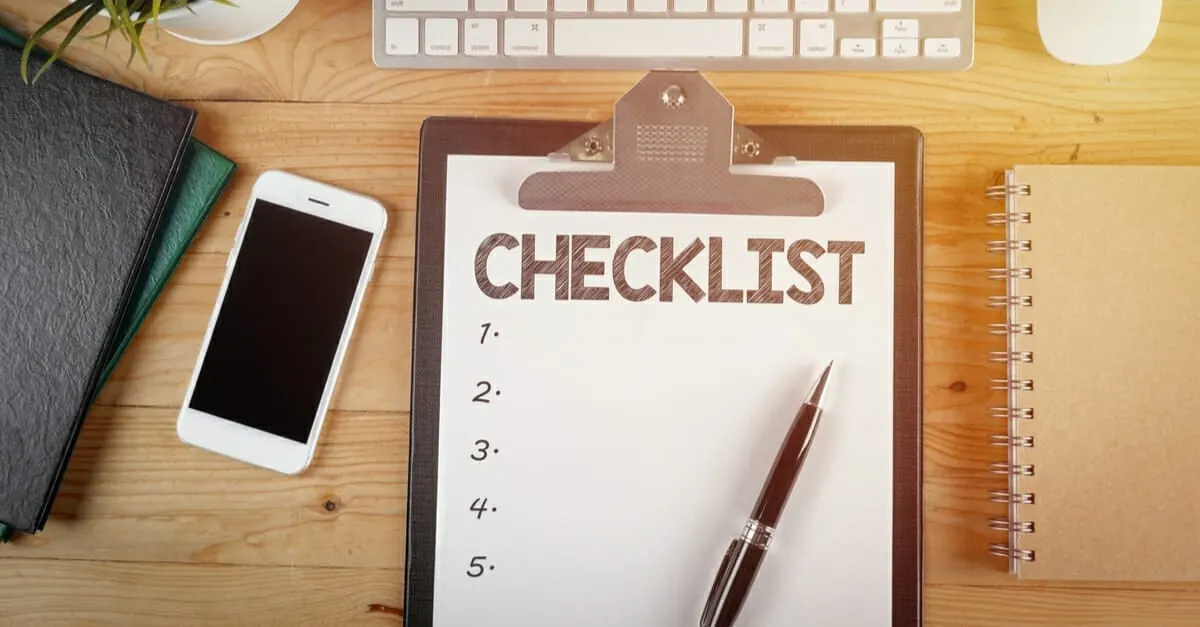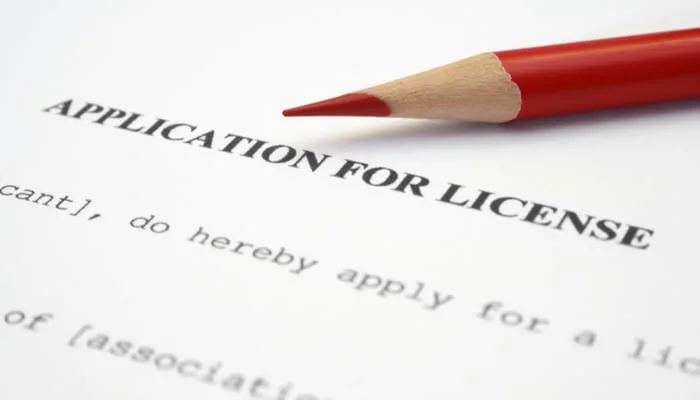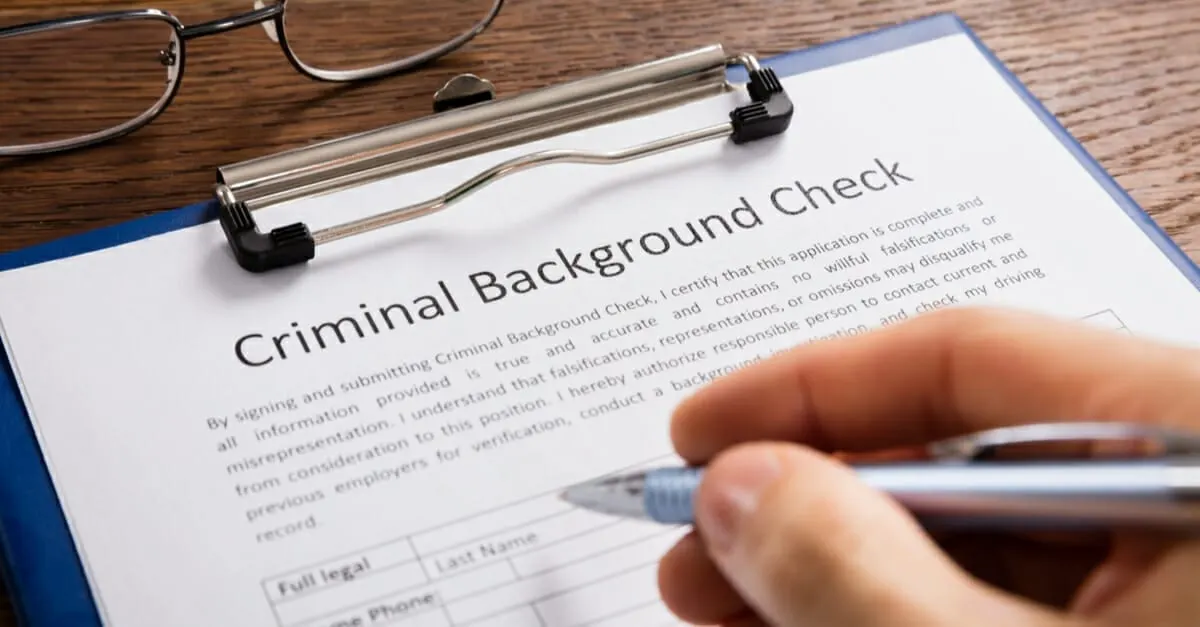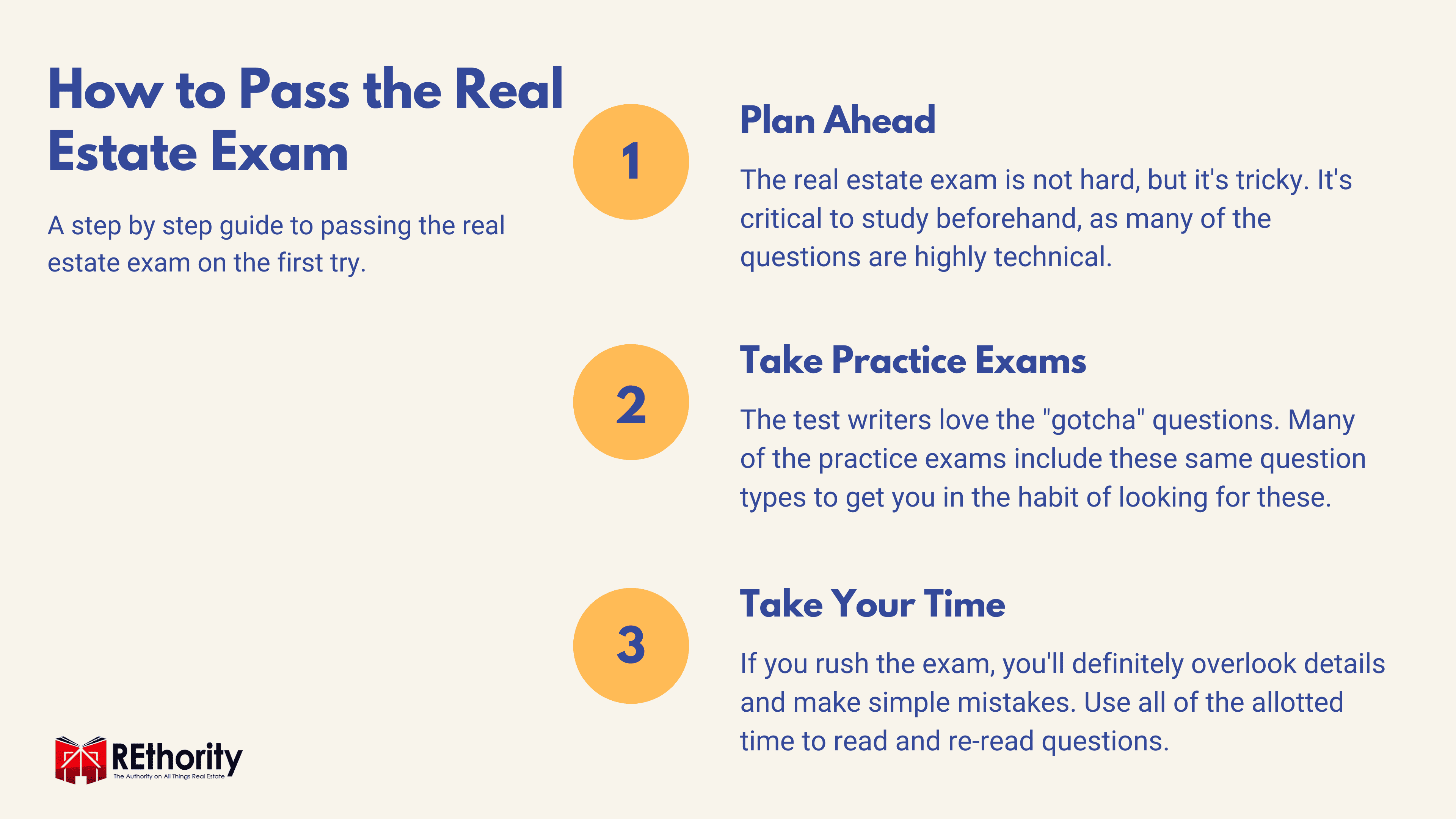Texas is one of the largest real estate markets in the United States. Of course, everything is bigger in Texas!
Read on to learn how to get a real estate license in Texas to make the most of the “bigger” housing prices.
How to Get a Texas Real Estate License
The State of Texas requires the most pre-licensing hours of real estate education, so we’re confident that Texas agents are among the best-trained in the country.
In order to maintain its training standards, Texas will not honor real estate licenses granted by other states. The Texas Real Estate Commission (TREC) is in charge of real estate licensing in Texas.
While TREC hasn’t made it a piece of cake to become a real estate agent, the process is still relatively straightforward. Here is how to do it:
1. Check Your Qualifications

Rasdi Abdul Rahman/Shutterstock
Not just anybody can get a Texas real estate license. To apply for a license, you must be:
- A United States citizen or legal alien
- A resident of Texas
- 18 years of age or older
- Up to TREC’s moral character standards for honesty, trustworthiness, and integrity
The first three qualifications are clear. The last one is a little more slippery. TREC says that you may not meet the moral character license requirements if you have:
- Any criminal offenses
- Unpaid judgments
- Performed any unlicensed activity
If you have any of those, you might not qualify for a license. If there’s something questionable in your past, TREC suggests requesting a Moral Character Determination (MCD).
Requesting an MCD involves filling out a background history. Disclose all felonies and misdemeanors, even old ones. It costs $50 to request this. Don’t do it unless you have criminal offenses, unpaid judgments, or have performed unlicensed activity.
But if you suspect you’ll fail the moral character test, it’s best to find out first. That’s what the document is for. It’s much less expensive than going through the whole application process.
2. Take Pre-Licensing Coursework

Blurryme/Shutterstock
Education is the most time-consuming and expensive part of getting a license. TREC requires 180 classroom hours of Texas real estate courses, more than any other state.
Before you fill out your application, you have to complete all 180 hours. The curriculum consists of six sections of 30 hours each, which include:
- Principles of Real Estate I
- Principles of Real Estate II
- Law of Agency
- Law of Contracts
- Promulgated Contract Forms
- Real Estate Finance
While TREC tells aspiring agents what they need to study, it doesn’t say where to get this education. The state agency publishes a list of TREC-approved schools. It’s up to the students to pick one.
3. Pick a School

Andrey_Popov/Shutterstock
When picking a school, look for one with students who reliably pass the real estate exam. A convenient location is also important if you are attending face-to-face classroom lectures.
Prices can vary. Real estate schools also offer discounts, packages, and special deals. If cost is an issue, shop around for the educator with the best value.
Pick the Best School for You
Even self-paced, you can’t take less than three days to complete a 30-hour section. TREC also won’t let you take more than one course at a time.
This means you must spend at least 18 days to complete the whole 180 hours. The online course provider will time you and let you know if you’re moving too fast.
After course completion, you’ll receive documents showing you finished the work. You’ll submit these to TREC with your application.
If you prefer the standard classroom environment, we suggest Champions School of Real Estate. However, there are other options. Online schools like Real Estate Express are great for those requiring a more flexible course schedule.
4. Make Your Application

Alexskopje/Shutterstock
You can fill out the application for a license online or through the mail. TREC has an online application tracker to tell you where you are in the process. It will let you know what to do next.
If you apply by mail it takes longer. Paper applicants also have to pay a $20 paper filing fee. The application asks if applicants have unpaid judgments, criminal convictions, or similar issues. TREC considers these indications of questionable character.
Answering “yes” to any of these questions means you must complete a background history form. You’ll also have to explain your answer. After completing the application, you’ll pay the fee. Here is how it breaks down:
- Sales agent initial application fee: $205.00
- Background Check Fee: $28.25
- Real Estate Recovery Fee: $10.00
- If you are applying on paper, add another $20.
You can pay your fees online with a credit or debit card. The agency announced in 2019 that it would no longer accept ACH payments online. You can mail in checks and money orders. TREC won’t accept cash, however.
When you’re done, email the agency the certificates showing you completed the course. Include the evidence of payment TREC sends after you pay. If you had to complete a background history check, email that as well.
Tip: Make sure you are ready to complete the entire license process before starting it. Once you file an application, you have one year to complete the requirements or start over.
5. Get Your Fingerprints Taken

Andrey_Popov/Shutterstock
The Department of Public Safety (DPS) must have your fingerprints on file before you can get licensed. DPS will send them to the Federal Bureau of Investigation.
They will be used to run a background check on you. Fingerprinting is done by a third-party vendor at a DPS-authorized site. DPS uses a company called MorphoTrust to collect the fingerprints.
You will pay MorphoTrust $38.25 to take your fingerprints. You paid a $28.25 background check fee when you filed our application.
6. Take the Texas Real Estate Exam

After your background check is completed and your application is processed, TREC will send you an eligibility letter. The time this takes varies, but three weeks or so is typical.
Once you receive your eligibility letter, you will be able to schedule the licensing exam. Pearson Vue, a private testing company, conducts the actual exam at one of its facilities.
Even though you completed the pre-licensing courses, consider taking an extra exam prep course. If you fail the test three times, you will have to take more courses. It’s always best to be sure.
Take Practice Exams
Review your notes and study material. You can download a candidate handbook, content outline, and study guide from Pearson Vue’s website. Pearson Vue can also sell you practice tests.
You’ll pay Pearson Vue a $54 exam fee to take the state exam. Bring two forms of identification. Include at least one photo ID, such as a driver’s license, military ID, or passport.
Take Your Time
The other can be a Social Security card, credit card, or debit card. You can use a calculator during the Texas real estate exam, and you’re allotted four hours to finish.
The proctor will determine your pass-fail score immediately after taking the test. You can pass one portion while failing the other. Luckily, you can retake one failed portion. If you fail both, you have to redo your application.
After you pass the exam, TREC will send you an inactive sales agent license. This doesn’t allow you to work as a real estate agent just yet. But you’re getting close.
7. Find a Sponsor

Stasique/Shutterstock
The last step to beginning work as a Texas real estate agent is finding a sponsoring broker. The sponsor needs to be an active broker licensed in the state of Texas.
Picking the right broker is important. Look for someone who:
- Fits your goals as a real estate agent
- Has programs for training, education, and mentoring
- Offers a fair fee structure
- Has a track record of sponsoring successful agents
- Offers support such as advertising, signs, and lockboxes
- Is there someone you can work with?
Of course, you’ll need some guidance on the best firms to work for. While there are many options, here are some of the top real estate firms operating in Texas:
- Better Homes and Gardens Real Estate
- Camden Property Trust
- Century 21
- Coldwell Banker
- ERA Real Estate
- Keller Williams Realty
- RE/MAX
- Sotheby’s International Realty
The company you’ll work for as a new real estate agent is important. But in real estate, location is considered the most important variable.
You’ll want to pick a dynamic and expanding market to get started in real estate. Almost every Texas city shows strong job growth and housing prices.
But some are still better than others. PwC’s Emerging Trends report listed three Texas cities among the 20 favorites for investment and development in 2019.
- Dallas/Fort Worth
- Austin
- San Antonio
Your real estate career will have good prospects almost anywhere in Texas. But those three cities right now offer especially bright futures for a real estate salesperson.
After choosing a firm and a market, you don’t need to knock on doors to find a sponsor. You can request a sponsor using TREC’s online licensing service.
Once the broker you’ve selected has agreed to sponsor you, you can file the sponsorship documents. As soon as TREC gets the paperwork, the agency will issue your active license.
So, How Do You Get a Real Estate License in Texas?
As we’ve described in the steps above, getting a Texas real estate license is as simple as applying, taking the test, and finding a sponsoring broker.
Of course, it’s no walk in the park. But if you dedicate the time and energy to learning the material, you’ll be a Texas-licensed agent in no time.

